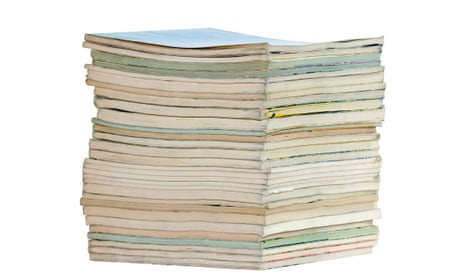Everybody knows it. Nobody says it. Every project allegedly needs one. But it remains largely ignored. It’s one of the easiest things to get funding for, yet one of the least useful in practice: yes, reports. Policy reports, project reports, evaluation reports, campaign reports. Oxfam UK alone has published 129 reports and papers since January of this year.
Show me one office that doesn’t use a stack of reports to prop up an old computer screen somewhere, gathering dust, and I’ll show you Nigel Farage participating constructively in a European fisheries meeting.
The familiar scene: a report crosses your desk with the requisite cover note that quickly goes into the recycling bin. With a heavy sigh, you glimpse through the executive summary, then throw it on to a pile thinking: “I’ll get to that later.” Only you never do. After a few months or years, they see their final resting place (still unread) among the mounting rubbish pile on the annual office clear-out day.
We need to stop the madness. Call a moratorium now. Here is my five-point call to arms for overcoming this addiction to report writing.
1. Is there another, better way to get this information out there?
In the digital age, where movement building is more important than reams of evidence, information needs to be shared in different ways for it to have an impact. Every workshop or project evaluation doesn’t need a report. Give some money to each participant to host their own event with another group of people to discuss what to do with the information and how to embed it. Create a blog or vlog or podcast. Think creatively, not lazily.
2. Is this really information that needs to be reported publicly?
Transparency is good. But too much information clouds what’s important. If the information will be useful for a targeted audience, keep it for that audience. Don’t spend a fortune making it glossy and pretty. Don’t post everything on your website. Pass on the fancy foreword written by some notable person. Pass on the press release that nobody is going to read let alone report on. Send out an emailed word document or a PowerPoint presentation with the key findings to the relevant people alone and be done with it.
3. Tell me something I don’t already know, don’t bother publishing the rest
Too many public reports are peppered with something that passes for evidence or recommendations but instead are evidence-light with platitudes that pass as recommendations. A farming project that reports on income without looking at expenditure is a waste of time; a report that says “climate change is harming the world’s poorest” is merely a broken record. We know that we need to “build better institutional knowledge” or that women’s caring responsibilities are a barrier to their gaining employment. I don’t need another report to tell me so.
If you have nothing new to recommend, no new strategy or follow-through thoughts, don’t bother. Really. Don’t bother. The information may be important for you internally, but just like I don’t share my family shopping list with my neighbours, please don’t share these reports with everyone unless there is something new we can all do about it.
4. If you want to have an event to engage people, then do that. Don’t use a report as your crutch
Report launches should really read: “Come to the launch of our recent report where a panel of the so-called great and the good will say generalised things before you get to drink and talk to people who are more interesting than the panel.” Occasionally there is a useful launch of genuinely groundbreaking research. But mostly, we go to launches to meet people, to organise, to network. Gatherings should be used to build alliances not to share information from a report.
5. And lastly, if you really have something exciting to say, be brave and say it
Reports should say something brave, something new, something useful. Everyone should want to pick it up and digest the findings, and act on the results. I once commissioned a report on behalf of an organisation, and spent hours editing it for public consumption. But the organisation then decided they didn’t want to publish it – it was too political, they said. We knew the terms at the outset and the report hadn’t deviated from them. But the leaders of the organisation chickened out. They preferred to put something out that was bland and beige that added nothing to the debate, and failed to further the agenda. The real findings remained buried. The status quo prevailed.
We’re all to blame. NGOs need core funding, but often can only get project funding, and a simple report is something to add to the end of a funding bid. Donors want to see evidence that we’re doing something with their money, so they happily hand over a few grand to make sure its written up in report form.
But change, which we’re all in the business for, comes from working with people, it comes from hard graft, it comes from meeting and lobbying and engaging and building alliances and strategising. Unless you’re publishing your own version of the Panama papers, real change is unlikely to ever come from a report. Get over it and do something better with your time and money.
Join our community of development professionals and humanitarians. Follow@GuardianGDP on Twitter. Join the conversation with the hashtag #DisabilityRights

Comments (…)
Sign in or create your Guardian account to join the discussion